#palestinian voices
Text
Bisan, a Gazan journalist and filmmaker who you should absolutely be following, has recommended this free resource on Israeli propaganda against Palestine and thePalestinian liberation movement. At less than 20 pages and currently available in 6 languages, including English, Spanish and Mandarin Chinese, it’s simply a MUST.
There’s also a guidebook for amplifying Palestinian voices.
Get educated TODAY:
[We’re also going to be copying the files over to our Drive incase anything happens to this one!]
#palestine#free palestine#palestine resources#justice for palestine#how to help palestine#palestinian voices#jewish antizionism
2K notes
·
View notes
Text

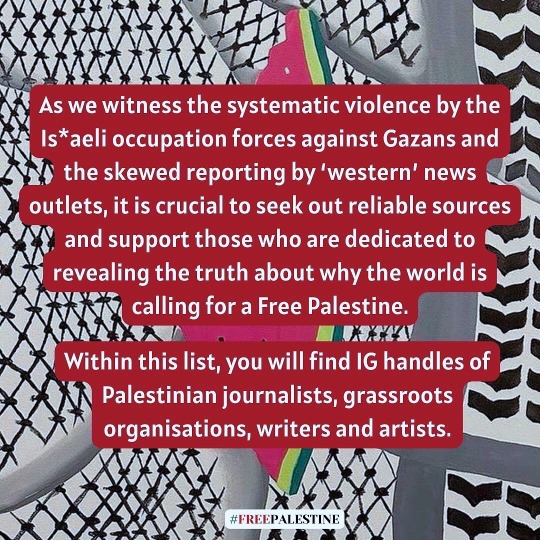

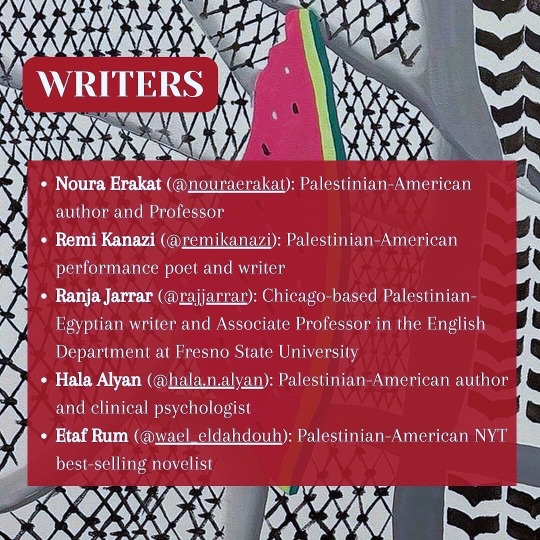

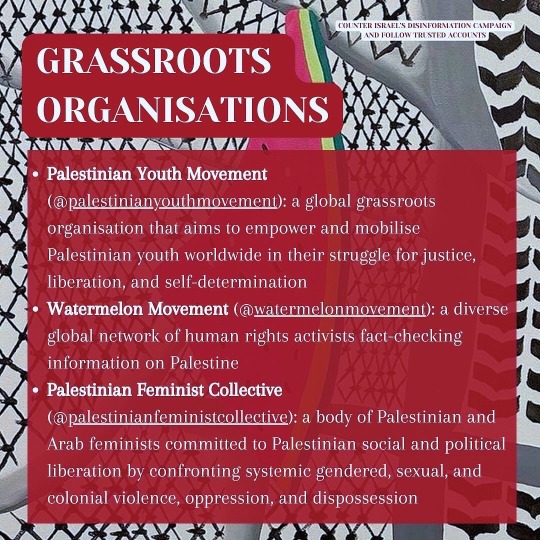
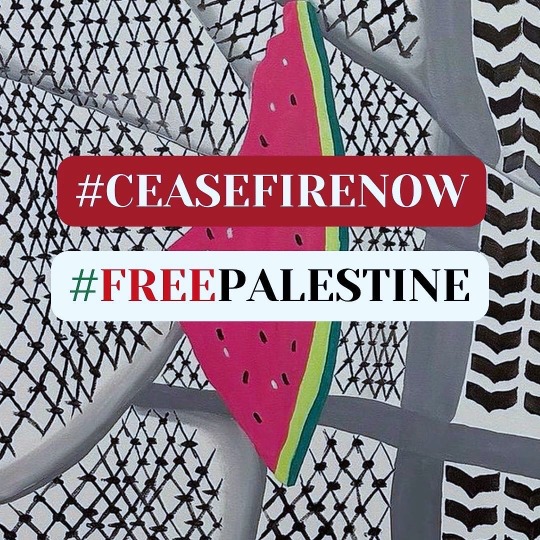
#palestine#Palestinians#free palestine#Gaza#west bank#gaza genocide#palestinian voices#ceasefire#ceasefire now#human rights
968 notes
·
View notes
Text
𝐃𝐨 𝐧𝐨𝐭 𝐥𝐨𝐨𝐤 𝐚𝐭 𝐡𝐞𝐫 𝐰𝐢𝐭𝐡 𝐝𝐢𝐬𝐠𝐮𝐬𝐭 𝐨𝐫 𝐛𝐞 𝐚𝐟𝐫𝐚𝐢𝐝 𝐨𝐟 𝐡𝐞𝐫 𝐞𝐲𝐞𝐬.
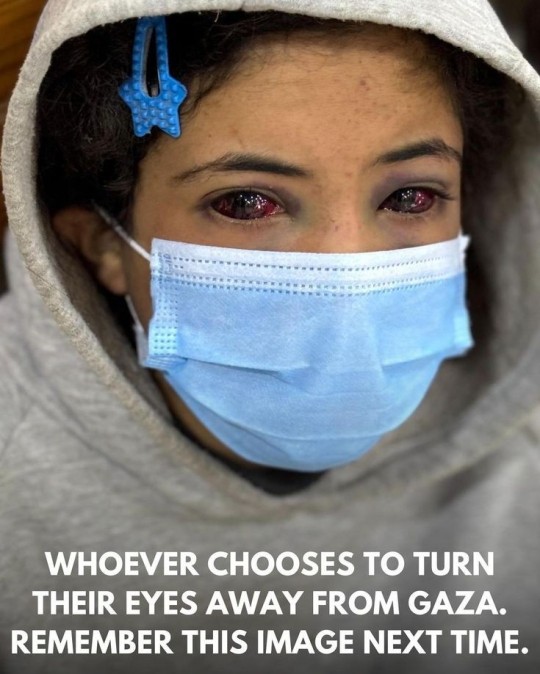
#palestine#free palestine#palastine#gaza#free west bank#current events#ceasefire#free gaza#Free the children of gaza#Love for gaza#Prey for Palestine#Prey for gaza#look at her#palestinian workers#palestinian children#palestinian men#palestinian woman#palistine#palestinian voices#palestinian rights#palestinians
46 notes
·
View notes
Text
FREE FREE PALESTINE
Please watch in full ! It’s so important 🇵🇸
Manchester last Saturday
#free palestine#pro palestine#gaza#share#help gaza#palestine#world#share this#amplify palestinian voices#amplify this#amplify#palestinian voices#Palestinians matter#please share#current#important#current news#israel is a terrorist state#end the occupation now#occupation#human rights#yffp#Manchester#Manchester protest#Manchester pro Palestine#from the river to the sea#ceasefire now#ceasefire#protest#keep boycotting
45 notes
·
View notes
Text
instagram

#palestinian voices#endisraelsgenocide#ceasefire now#ceasefire#israeli terrorism#palestine#gaza#i stand with palestine 🇵🇸#free gaza#free palestine 🇵🇸#gaza strip#free palestine#gazaunderattack#palestine resources#israel is a terrorist state#israel is committing genocide#Instagram
22 notes
·
View notes
Text
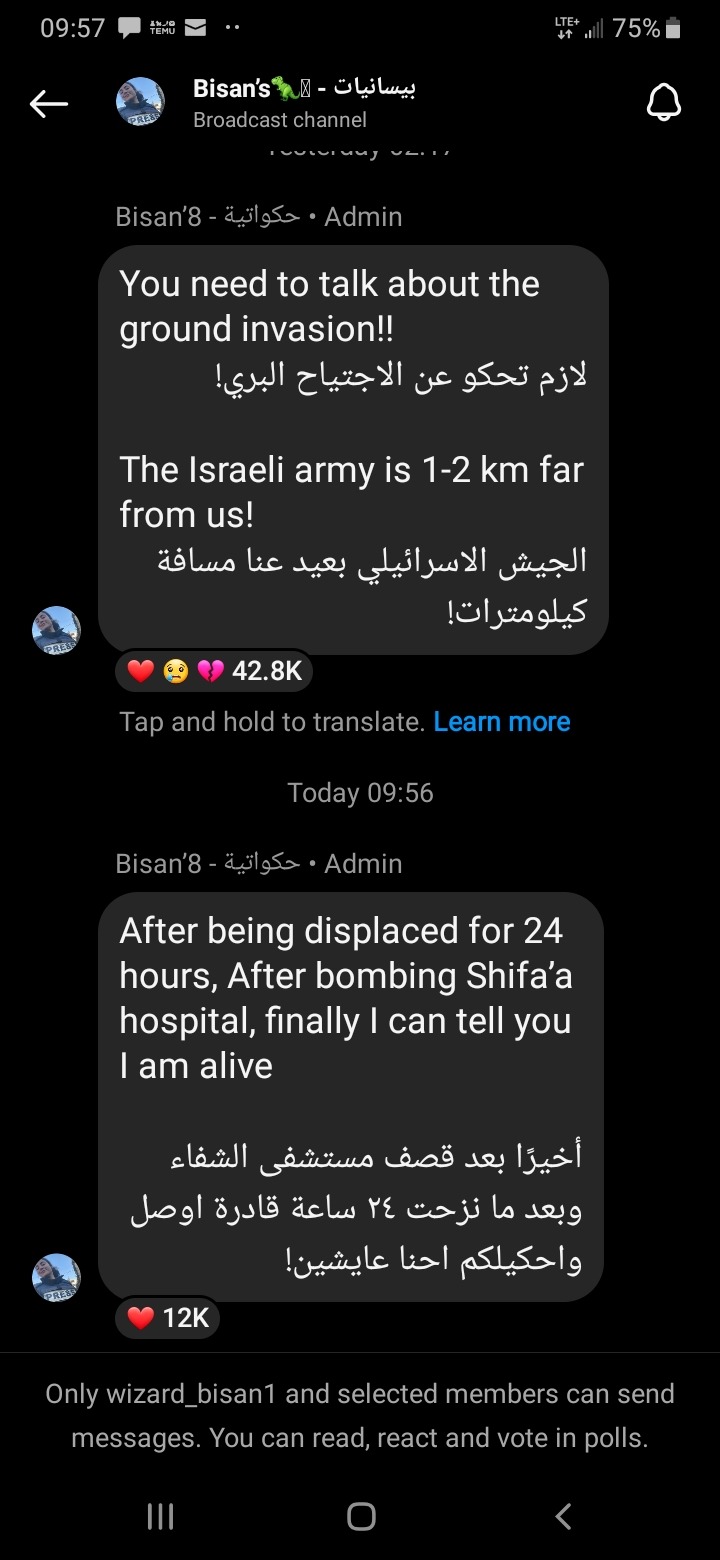
Do you all see that?! Within a minute of Bisan posting 12,000 people were right there!😭🙏🏾

#amen#bisan#bisan owda#gaza#gaza update#free palestine#solidarity#🍉#palestine#palestinian voices#free gaza
21 notes
·
View notes
Text
Since "Palestine Speaks: Narratives of Life Under Occupation" is suspiciously not available in the US in the form of an e-book, I purchased a physical copy and wanted to share it here for anyone else also unable to get access.
WAFA AL-UDAINI
NGO worker, 26
Born in Deir Al-Balah, Gaza
Interviewed in Gaza City, Gaza
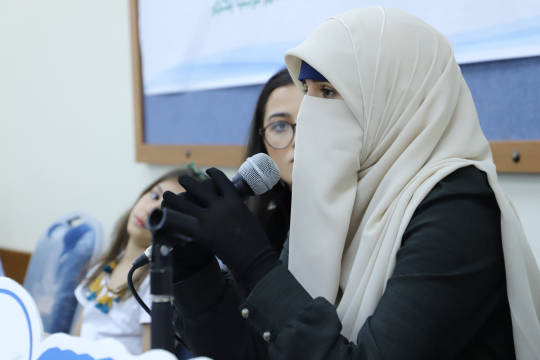
When we first meet, Wafa tells us that her goal is to correct the stereotypical images permeating western media about Palestinian people. Standing in her small office in a dingy building in the middle of Gaza City, this seems like a daunting task, but it's one she is clearly passionate about. She is a small, poised woman with boundless energy wearing a white niqab that covers her head and face. Working with a group of other young men and women, she puts together videos to send to universities around the world featuring ordinary Gazans explaining their hopes and dreams.
She also runs a Facebook page, does regular interviews with the media, and has a wide network of friends around the world. She speaks simply but powerfully in English. When asked about the water quality, she bursts into laughter and asks if we've tried to wash our hair with it yet. Wafa manages to retain her sense of humor, despite Gaza's many deprivations.
Movement of people and goods between Israel and Gaza has been restricted since at least the First Intifada. However, Gaza in the 1990s maintained strong economic and administrative ties to both Israel and the West Bank. Thousands of workers passed through the Erez border crossing from northern Gaza into Israel every day. Travel between Gaza and the West Bank was possible for many Palestinians, even if a bit of a bureaucratic hassle. All of that changed in 2000 at the start of the Second Intifada. Israel began closing the borders to Gaza in what it claims was a response to rocket attacks and suicide bombings. It also destroyed Gaza's only airport. In 2001, Israel began the construction of a massive barrier wall around the entire Gaza Strip and set up a military buffer zone around the perimeter of Gaza, which now takes up 14 percent of Gaza's land area (and which expanded to roughly 44 percent of Gaza's land area during Israel's July 2014 invasion). Israel also significantly restricted movement between the strip and the West Bank for most Palestinians. The border closures devastated the Gazan economy.
In 2005, toward the end of the Second Intifada, Israel unilaterally withdrew its military from Gaza and evacuated all Israeli settlements in the Gaza Strip, effectively handing administrative and security control to the Palestinian Authority while opening up some of the closed border crossings to Gaza. However, after the political party Hamas won full control of Gaza in 2007, Israel again closed the borders and imposed a blockade of goods into Gaza by land, air, and sea.
For Gazans such as Wafa Al-Udaini, the border closings would have made life nearly impossible if not for smuggler's tunnels that allowed goods to pass from Egypt into Gaza. Though seen as a military threat by Israel (a means of weapons smuggling to Hamas), the network of over 1,200 tunnels also provided Gazans with food, construction material, medicine, and occasional luxury goods that wouldn't otherwise be available to them.
A LOT OF KIDS SKIPPED SCHOOL TO DEMONSTRATE OR THROW ROCKS
I was born in a hospital in Gaza City in 1988. I'm from a big family - I have five brothers and six sisters. I'm the youngest. The town I grew up in is called Deir Al-Balah. It's right in the middle of the Gaza Strip, about a half-hour drive south of Gaza City.¹
I grew up used to seeing soldiers in the streets while I played. They'd always be chasing someone who'd thrown stones. Especially by the start of the Second Intifada around 2000, there were so many soldiers around all the time.² I remember Israeli soldiers came into our home once to arrest two of my brothers. One brother was seventeen at the time, and the other was just thirteen. They banged on the door until my mother opened it, and then the soldiers hit her on their way in to get my brothers. I was so scared. The soldiers claimed my brothers were throwing stones, but really they might have arrested my brothers just for looking at them funny. That happened a lot. I cried and cried after they left, it was so frightening.
My seventeen-year-old brother was studying for his tawjihi exams at the time, and after he was sent home after being detained for a couple of months, he was too frustrated to continue studying.³ My younger brother was released right away, but he stopped going to school. During the Second Intifada, a lot of kids skipped school to demonstrate in the streets or throw rocks. But I stayed in school and continued to high school during the Second Intifada. Then suddenly, in 2005, Israeli soldiers left Gaza.⁴ For the first time we didn't see the soldiers in the streets, only Gazans. But at the same time, Israel was sealing the borders, so it was hard for people to go to work. Then Hamas got elected, and a lot of aid into Gaza was cut off.⁵
Not long after that, I passed my tawjihi exams and got accepted into Al-Aqsa University in Gaza City. I began studying education at Al-Aqsa around 2006, and then after my first year of school, the blockade started. The first thing I remember was the blackouts. Suddenly, we only had power a few hours a day at most. And there was no propane gas to cook with anymore, so we had to hoard it. Really basic things-formula and diapers, for instance-weren't available, at least at first. But then so much of what we needed started coming through the tunnels. Before long you could get just about anything you wanted-European chocolate, designer clothes, anything.
EVERYWHERE I LOOKED I SAW SMOKE
I was nineteen and still a student during the air strikes in 2008 and 2009. The first day of the strikes, December 27, 2008, was quite memorable. I left the university early because I only had one lecture that day. Just before I reached my house, I heard many explosions. I said to myself, Oh my God, what's happening? There's so much smoke, and I can't see. I ran home and went upstairs to see what was going on from our roof, and everywhere I looked I saw smoke, but I didn't know exactly what was happening-there was no electricity so I couldn't find out what was going on from the TV. I tried to call out to my brothers and my sisters, but they were out of the house and nobody replied.
I was so worried. My neighbors said that Israeli fighter jets had targeted a place in Khan Younis, but some other neighbors said that they targeted a place in Gaza City, and then some others said, no, it was in the south.⁶ Everyone had a different idea about what was going on. I thought, Oh my God, who should I believe? When I looked up, the sky was full of airplanes and helicopters. The first day, the fighter jets bombed hundreds of places, including mosques. They must have targeted every mosque in the Gaza Strip. Our house is close to a mosque, and some of our neighbors were so afraid, because the Israelis could have attacked the mosque at any time and destroyed our building in the process. So our neighbors wanted to go to another, safer place. But we told them there was no safe place in the Gaza Strip. Wherever you went, you would find danger there. The jets ended up bombing the mosque and our house shook violently during the explosion, but nobody was hurt. Only the windows of our building were damaged.
It's a funny story, actually. Okay, it's not funny, but our relatives lived near the border with Israel, and they came to live with us near the coast where it was a little safer. But unfortunately, the night they came to our house, the Israelis targeted the mosque. They were so scared! Our relatives left our house saying, "Oh my God! No place is safe to live! We'd rather die in our own house than die in yours!"
I remember the drones showing up. They buzzed through the skies, and the sound they made was like they were whispering, "I'm going to attack you, I'm going to target your house, your family, your friends." But now we're used to the sound of drones. The last war, in 2012 was more difficult, actually, because in 2008, to some extent, the Israeli army was coming into Gaza. But in 2012, it was just planes. They hit many places, not just police stations and mosques, but houses—really everything in the Gaza Strip.
By 2012, I had graduated and become a teacher. I was a substitute, and would fill in where I was needed. When I was a teacher, I had a very smart student, and I loved her so much. She was an excellent student. She was in the first grade when I taught her. But just about five months after the air strikes in 2012, I met her again, and I was shocked when I saw her. She had lost her mind, and she was walking down the street as if she didn't know anybody. I went to her and asked, "Do you remember me? I was at your school. Do you remember?" The girl looked at me and laughed. She didn't remember anything. I spoke with her mom and she told me the girl's uncle was killed in front of her eyes. The Israelis bombed the place where he was sitting. He was a civilian, not involved in the resistance at all. He was just sitting in front of his house. And, unfortunately, they also traumatized this girl. And really, I was so shocked and so sad when I saw her.
WHEN THERE WAS NO ELECTRICITY, MY MIND WOULD FEEL SO SLEEPY
Since 2007, we've suffered a lot from power cuts. We might get six or eight hours a day on good days. And power might be on in the morning or at night. Every week we get a new schedule, published in the papers and announced on TV or radio. Everything is affected by the power cuts. So it's hard to establish a daily routine.
We never had a generator at my family's house, because I have a lot of nieces and a lot of nephews, and we were so afraid that one of them would touch it and get burned. You know, you hear many stories of generators blowing up and whole families dying. So we preferred to live without electricity than to see our families injured. We wouldn't use candles either because they're dangerous. Instead, we had battery-operated lights that can be charged during the limited time that power is on. They're safer.
I lived in my parents' household until this past year. There were about twenty-five, twenty-six people in our household-mostly my brothers' families. All my sisters had married and moved out. During that time, when the power went out, we'd go to the upstairs of the house. I'd sit with my extended family, chatting and having fun. Sometimes if most of the family was out, I'd read books or write.
But when there was no electricity, my mind would feel so sleepy! This was always a major problem for me. I'd lose concentration for reading or studying for my exams, for example. When I was still a student, I'd have to prepare an assignment for our professor at the university, but I couldn't rely on an internet connection because power would go in and out, so maybe I wouldn't finish in time. Plus, many times the lights wouldn't last for more than two hours, so I had this tiny window to do all my studying. It was a lot of pressure.
As for housework, I couldn't use the washing machine much of the time. I couldn't even make tea with the electric kettle. And I really suffered from not being able to iron my clothes. After I graduated and started teaching, I'd be late to work many times because I was waiting for the electricity to come on to iron. Sometimes I'd go to my friend's house in another city where they had power that day, just to do some ironing.⁹ Since the blockade began, we've had a shortage of cooking gas too. Icannot make sweets or bake a cake. Every time I want to make one, I can't because I don't have any propane gas.
Then there are the water problems. The water is affected by the electricity. There is a water pump in town, so when there is no power, for sure there will be no water. Then the water is polluted. It's saltwater, not for human use.¹⁰ We buy water for drinking and cooking. The other water cannot be used for even animals. We only use it to wash our dishes, clean the house, and wash clothes. Even in the shower, the water ruins our hair. We wash our hair with the sweet water, but not all the time. We can't manage to have a shower with only sweet water. It's not free. So maybe for a wedding, we'll wash our hair well. We have to pay for everything, and a lot of people here in Gaza are unemployed. So they can't pay for the electricity, they can't pay for the gas or the water.
We depended on the tunnels to bring us our basic needs-our food, our clothes, our medicine, everything. When the tunnels were open, we'd go to the store and find all sorts of things. But Egypt and Israel have destroyed the tunnels now, so there's hardly anything in the stores.
MY WEDDING DRESS MIGHT HAVE BEEN BROUGHT THROUGH THE TUNNELS
This year, I got married. Planning for the wedding was a bit of a challenge! One thing I remember was visiting the market to buy my wedding dress. I asked the merchant if all the dresses had been made in Gaza, and he said that many had been sewn in Turkey or Egypt and brought through the tunnels. It's amazing to think of these beautiful dresses being carried fifty feet under the ground through dark, muddy tunnels.
My husband and I were married on March 24, 2014. The day of the wedding, we had to improvise a little. Normally families would prepare food themselves for a wedding in Gaza, but cooking gas was too hard to find. We had to hire a restaurant to cater the wedding for us, since restaurants had an easier time finding cooking fuel. Of course it was all very expensive. We rented a wedding hall, but nobody could afford to take a taxi to the wedding hall because gasoline is expensive, and cabs are nearly unaffordable. We had everyone coming from the neighborhood meet at the bus stop, and we all went to the wedding hall from there. Still, it was a beautiful wedding, and I was happy even in my wedding dress that might have been brought through the tunnels.
Now that the tunnels are closed and nothing can get through Egypt, things are getting harder. Nobody has any money, and basic necessities like food are more expensive than ever. There is so much that needs to change in Gaza, but if I could change just one thing, I'd fix the poverty that's making life so difficult for so many Gazans.
Wafa and her family were especially hard hit by the bombing assault on Gaza that began July 8. They had no water for days at a time, and their access to electricity dwindled. Wafa was unable to use internet or even charge her cell phone, making it impossible to talk with her to get a full update. When she had electricity, she posted brief messages on Facebook and Twitter assuring her followers she was still alive. On July 8, she posted that the Israeli air force sent a warning to the twenty-five family members living in her father-in-law's house (seventeen of whom were children), telling them to leave their home. The family was able to leave before the house was destroyed. On July 25, Wafa wrote, "(Two weeks ago) they bombed my father in law's house, and today Israeli planes bombed my house, our only shelter, for no reason, and no evidence, just to (make) us kneel, but we'll never ever leave our country for them. Pray for us."
---
Footnotes
¹ Deir Al-Balah is a city of about 55,000 people located nine miles south of Gaza City. The vast majority of residents in Deir Al-Balah are refugees who settled in the city after the war in 1948. The city is known for its date palms, and it has a history that stretches back to fortifications used by pharaohs in the fourteenth century BCE.
² The Second Intifada was also known as the Al-Aqsa Intifada. It was the first major conflict between Israel and Palestine following the Oslo accords, and it lasted from 2000 to 2005.
³ An exit exam for high school.
⁴ Israel unilaterally decided to disengage from Gaza in 2004, and the plan went into effect in the late summer of 2005. Under Israel's plan, twenty-one settlements in the Gaza Strip would be evacuated, and the settlers compensated. The Israeli military would leave Gaza completely and leave the entire strip to the administrative and security control of the Palestinian Authority.
⁵ After Israel unilaterally withdrew from Gaza, parliamentary elections were held in 2006, and Hamas won the majority of the seats.
⁶ Al-Aqsa University is one of a half dozen or so colleges and universities in Gaza. It serves around 6,000 graduates.
⁷ Economic sanctions began in 2006 after the election of Hamas, but the full blockade wasn't imposed until a year later, after bloody fighting between Hamas and Fatah in June 2007 drove Fatah out of Gaza.
⁸ Khan Younis is a major city in Gaza located about twenty miles south of Gaza City. It has a population of around 250,000.
⁹ The electricity outages rotate throughout the Gaza Strip, so different cities lose power at different times of the day.
¹⁰ Up to 95 percent of Gaza's water is not fresh. Aside from salt, most of Gaza's water also contains organic and inorganic toxins. Most drinking water is purchased in tanks in Gaza's markets. Salt water is frequently used for showering and cleaning.
16 notes
·
View notes
Text
Watch Frontiers of Dreams and Fears on Netflix or Vimeo. It is a 2001 documentary by Mai Masri that depicts the lives of two young girls: Mona, 13, in a refugee camp, and Manar, 14, in an Israel-controlled camp.
Watch the documentary, hear these two girls' stories, and take in the torture their families have battled for decades. A village destroyed by Israel in 1948. Entire families separated by a barbed wire fence, threatened and intimidated by Israeli forces to step away from their lost loved ones. Children shot and killed for throwing stones at soldiers in bulletproof armor.

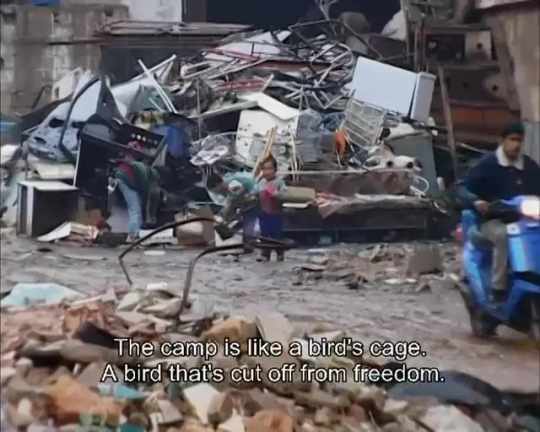
I'm not good with these types of posts, but I wanted to spread awareness about the documentary. Please hear their voices and don't stop talking about the genocide in Palestine.
#frontiers of dreams and fears#free palestine#genocide not war#palestine#palestine voices#palestinian voices#palestinian cinema
13 notes
·
View notes
Text
Panel on the situation in Gaza - Live now (hopefully it will be archived as well) please watch if you can
Join DDN & Palestine Deep Dive Live on Wed the 8th Nov at 7pm GMT for an all Gazan panel with chair Matt Kennard to discuss the latest on the frontline of the war in Gaza. Feat. Ahmed Alnaouq, Saleem Lubbad, Dr. Shahd Abusalama, Dr. Mohammed Seyam
11 notes
·
View notes
Text
Readalong For Palestine 2: This Arab Is Queer
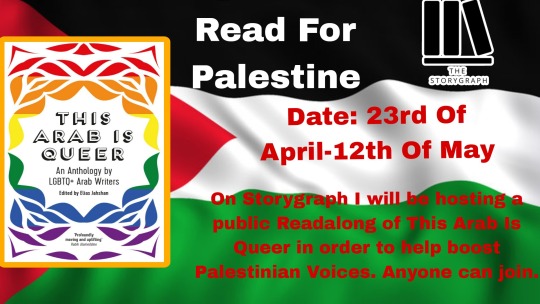
Introduction
We are all horrified and enraged about the vicious slaughter happening in Gaza especially in Rafah at the moment. No food, no hospitals something that breaks my heart into a million pieces over and over again. I unfortunately don't have the money but have decided instead to set up some readalongs to try combat censorship and help educate those when the media and news has become biased and unreliable. I've been reposting fund raisers but have still felt like this isn't enough so I knew I had to try set up something else. All books used in the Readalongs apart from this novel will be donated to my local library so that hopefully a few more people will be able to pick it up. I know it may seem small but I truly believe one small action can make a difference.
Censorship is becoming a rife problem with what's happening and a ton of people are getting misinformation so I believe the best way to combat that is by reading books from Palestinian Authors and fighting back against Censorship to get Palestinian Voices heard. It might not seem enough but I hope to make a little difference. There's also the issue of pink washing where tons of people are saying Palestinians deserve to be mistreated because it's not Lgtbq+ friendly, I shamefully once fell for this myself. Everyone deserves freedom and in fact that place is not as Lgtbq+ friendly as it claims. So due to this my second Readalong For Palestine will be This Arab Is Queer and Anthology edited by Elias Jahshan a Palestinian author.
This readalong will go through all the way to the beginning of May and I have several discussion boards open. I know that this Anthology is not solely by a Palestinian Author but I still found it important to include as unfortunately there is a stigma that comes from being ARAB. Most ARAB people don't feel safe with their own community but they also don't feel safe with the queer community as we like to strongly assume you can't be both queer and muslim. I believe this will be a key read for those that need to work on their internal racism and biases. I promise you this will a hundred percent be worth reading.
My Aims
My aims for doing these readalongs are pure and not for any malicious reasons. I was one of the people brainwashed by the deadly and brutal narrative that the media is pushing. So because of this I want to fight back and help educate people as there's no justification for Genocide. I also as a queer person want to fight back against the deadly narrative of Pink Washing as I'm sorry nothing justifies taking away life.
So here's all my aims and hopes with these readalongs.
1: Get more books from palestian authors out there.
2: Getting people to talk about what's happening through reading and discussing palestinian content.
3: Fight back against censorship and allow people to access to palestinian media that they want to silence.
Please be assured that these are my own intentions. I hope that for those that want to take part it's there intention as well.
Other Readalongs
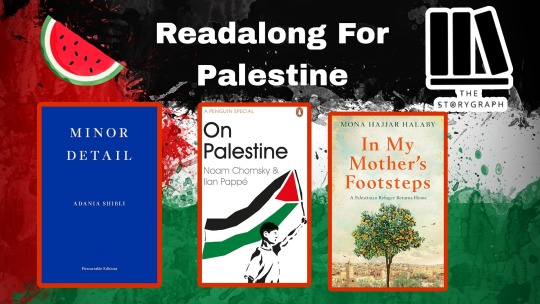
This is not the only readalong I will be doing. Minor Detail has come and gone but I will also be doing Readalongs for On Palestine By Noam Chamsky Ilan Pappé and In My Mother's Footsteps By Mona Hajjar Halaby. I picked On Palestine as I've seen the book recommended a lot especially when it comes to educating those who are completely unaware of the severity of what's happening. Its a quick read but also a super important one. I then chose In My Mother's Footsteps as I realised the important of hearing from the child of a Palestinian Refuge and fully learning what it's like. If this goes well I might host some more next year doing a sort of similar thing to the Trans Rights Readathon. It'll depend how uni's going for me though.
Unfortunately I'm not out of the closet yet so this one is being kept quiet on some of my socials but I still hope to get some people involved with each readalong.
Conclusion
The dates for the other two readalongs will be posted in a separate post once confirmed but for now This Arab Is Queer is the next one on the list. I would especially recommend joining this one if you've accidentally been part of the pink washing crowd. Once I've got my hands on this one I'm definitely keeping it as it's a super important book to have as it shows queernesss from a none western lens.
-Melody-
They/Them
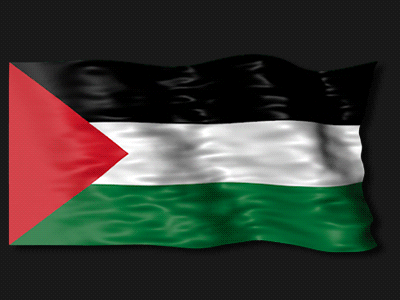
#bookworm#bookish#booklover#book tumblr#bookblr#free palestine#palestinian voices#palestinian authors#palestine#palestinian genocide#free gaza#lgtbqia+#pinkwashing#this arab is queer#storygraph#storygraph readalong#read along
3 notes
·
View notes
Text
instagram
Please share! And if you're interested in making a submission, please visit the Instagram post to find out more ❤️ 🏳️🌈 🏳️⚧️ 🇵🇸 ❤️
BTW they're especially welcoming submissions in Arabic - given that, if anyone can translate this post into Arabic and would like to do so, please go ahead!
#lgbtqia+#queer palestine#queer palestinians#palestinian voices#call for submissions#archival material#palestine#Instagram
2 notes
·
View notes
Text
1 note
·
View note
Text
𝐈'𝐦 𝐩𝐚𝐬𝐭 𝐩𝐞𝐚𝐜𝐞𝐟𝐮𝐥 𝐜𝐨-𝐞𝐱𝐢𝐬𝐭𝐞𝐧𝐜𝐞. 𝐓𝐡𝐞 𝐈𝐃𝐅 𝐡𝐚𝐬 𝐭𝐨𝐫𝐭𝐮𝐫𝐞𝐝 𝐚𝐧𝐝 𝐫𝐚𝐩𝐞𝐝 𝐚𝐧𝐝 𝐤𝐢𝐝𝐧𝐚𝐩𝐩𝐞𝐝 𝐢𝐧𝐧𝐨𝐜𝐞𝐧𝐭 𝐏𝐚𝐥𝐞𝐬𝐭𝐢𝐧𝐢𝐚𝐧𝐬 𝐟𝐨𝐫 𝐲𝐞𝐚𝐫𝐬. 𝐈 𝐰𝐚𝐧𝐭 𝐭𝐡𝐞𝐦 𝐠𝐨𝐧𝐞.🍉🇵🇸

#Bye israel#free palestine#palestine#palastine#gaza#free west bank#current events#ceasefire#free gaza#Free Palestinian children#palestinian rights#palestinian families#isnotrael#End oppression in Palestine#we will not be silenced#palestinian voices#Christans for Palestine
8 notes
·
View notes
Text
IMPORTANT speech from the Pro Palestine Manchester protest yesterday 🇵🇸 please listen to him
Follow YFFP on Instagram if you’re in the UK for protest updates🇬🇧 show up !
#free palestine#pro palestine#gaza#help gaza#share#palestine#world#amplify this#amplify#Palestinian voices#amplify Palestinian voices#Manchester#mcr#Manchester protest#protest#mcr protest#yffp#end israeli apartheid#end israeli occupation#if you are silent on genocide you support it#from the river to the sea#from the river to the sea Palestine will be free#Saturday#fyp#share this
29 notes
·
View notes
Text
instagram
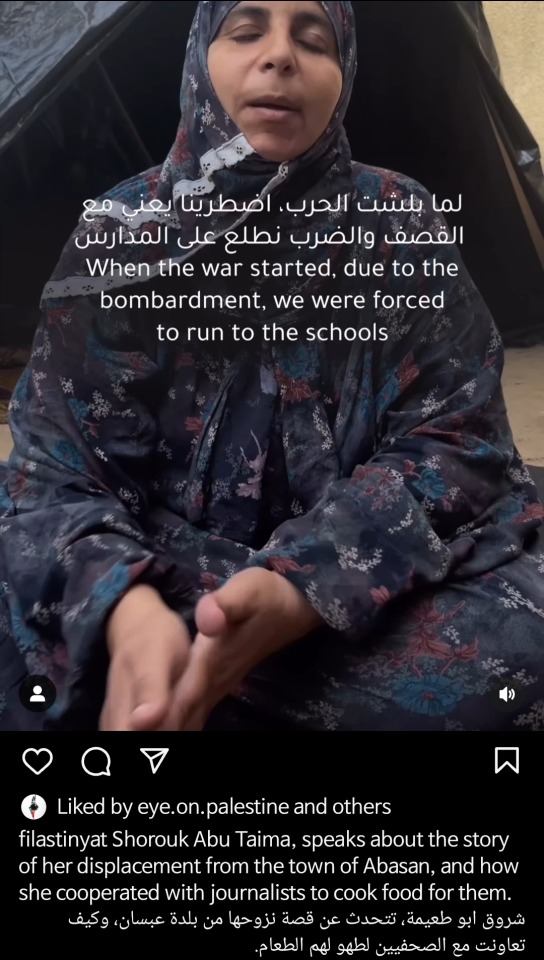
#palestinian voices#human rights#children rights#displacement#starvation#gaza hunger crisis#hunger crisis#israeli terrorism#endisraelsgenocide#palestine#free gaza#i stand with palestine 🇵🇸#free palestine 🇵🇸#gaza#gaza strip#free palestine#gazaunderattack#palestine resources#israel is committing genocide#Instagram
23 notes
·
View notes
Text
https://mondoweiss.net/2024/02/of-families-mills-and-gardens/
I'm bad at summarizing things but this is a very good article and I highly recommend it.
1 note
·
View note